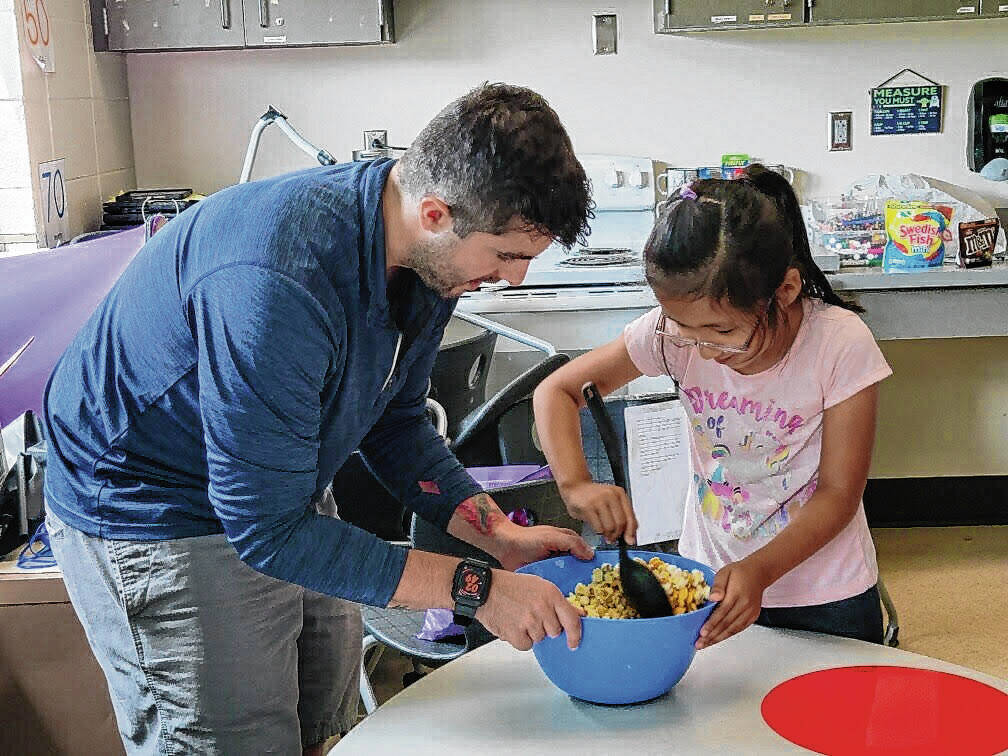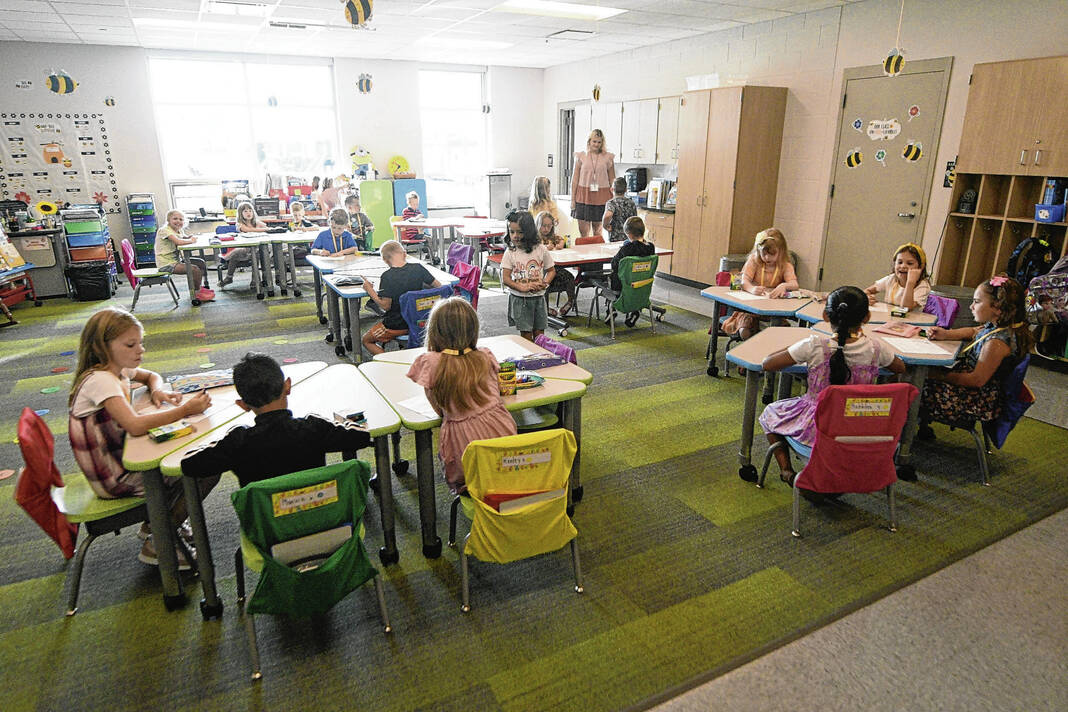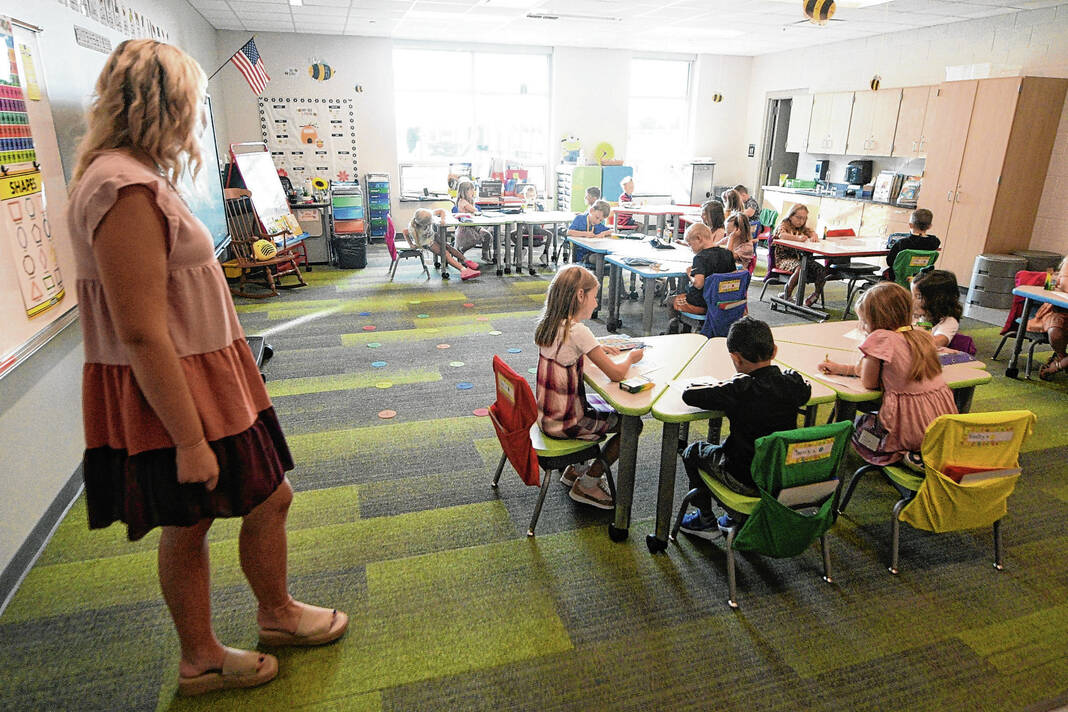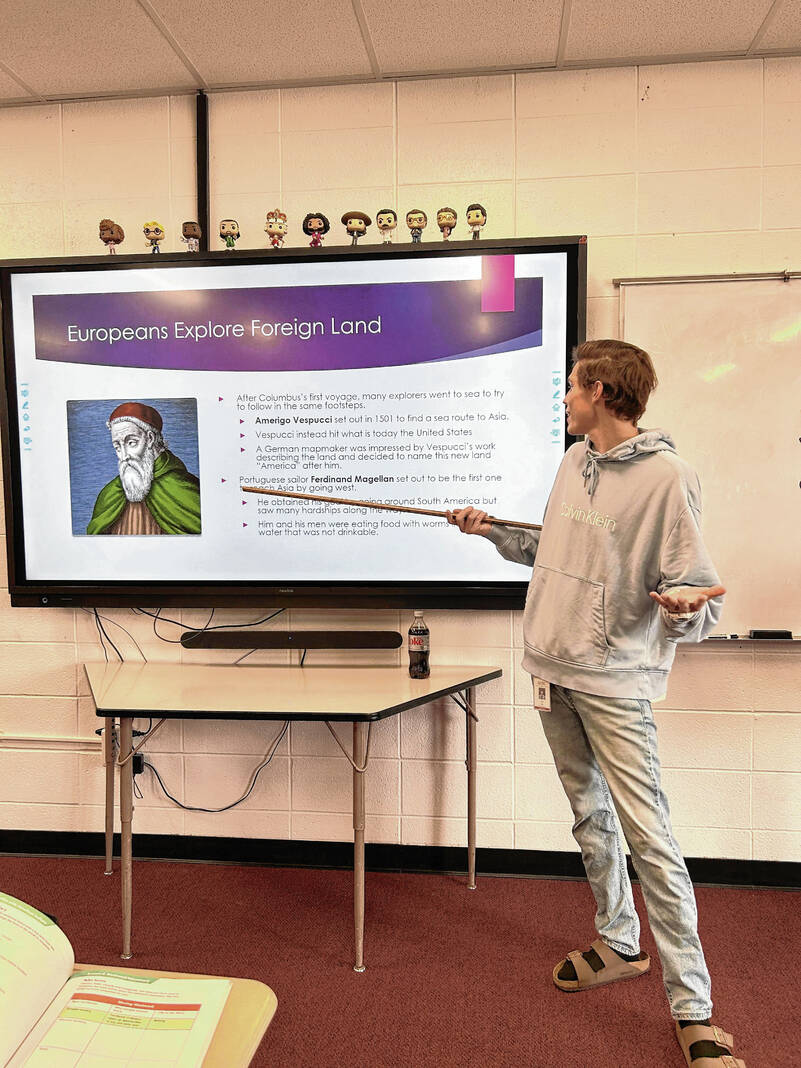Throughout Johnson County and the United States as a whole, teacher resignations are increasing and fewer teachers are applying to open positions. The Daily Journal spoke to early career teachers at schools across the county to find out what drew them to the profession despite the obstacles before them.
In seven states, more teachers left the profession last year than any year on record. From 2006 to 2020 the number of Americans earning teaching licenses gradually dropped from over 320,000 in 2006 to just over 215,000 in 2020, according to an article from Chalkbeat, an education-focused news website.
In Johnson County, Clark-Pleasant saw the most teacher resignations in the last two years with 118. Other school districts had a lower but still significant amount of teachers resign during the same time period: Center Grove, 89; Greenwood, 50; Franklin, 46; Indian Creek, 27; and Edinburgh, 23.
Teachers face low wages, as the state only requires school districts to pay a $40,000 salary. Though many school districts in the county and across the state pay more, teachers could get higher pay elsewhere.
Controversial issues seeping into the classroom, like fears that critical race theory and inappropriate forms of sexual education are being taught, have emotionally taxed teachers and been a source of stress. Behavior issues from both parents and students have also been a source of burnout for teachers.
Despite all this, young adults still come to the profession with a passion for education.
The starting line
For new teachers, it isn’t the salary that drew them to the profession. It is the love of helping young people grow.
Southwest Elementary special education teachers Joseph Grassia and Kaelyn Froebe are first-year teachers who fit that bill.
Grassia said he was drawn to helping students with disabilities because of a family member.
“I have an aunt and she has Down’s Syndrome. I spent a lot of time with her before she passed away and saw how she was treated,” Grassia said. “I wanted to be an advocate or spokesperson who would advocate on their behalf.”
For Froebe, she was drawn to the field by family. Her father was the superintendent of a school district in Illinois and her mother was a teacher. Froebe got her start working in the guidance office of an Illinois school and transitioned to teaching because of her desire to have an impact on kids, she said.
“Honestly, it’s all about the kids. Kids are the reason we’re teaching,” Froebe said. “We want to make improvements in society and it starts with educators. We teach the lawyers, we teach the doctors.”
Though Greenwood has a starting salary of $48,000 for full-time teachers, one of the highest in the county, money was never the goal when it came to picking a profession, Grassia said.
“I worked really hard to get where I’m at and I know I want to be here long term,” he said. “I don’t think of it as a job, I think of it as a career. I want to work with these kids as long as I’m able to. I want to be a role model for them and be a spokesperson and go to bat for them whenever I need to. I think the schedule is great, I love coming in here and having my summers off, but seeing the improvement you get from these kids, you can’t put a price on that.”
With all of the challenges that come with the first year of teaching, Carly Fresher, a first-grade teacher at Walnut Grove Elementary, is thankful for her fellow teachers.
“My team is really great. We’ve been collaborating a lot, setting up curriculum and behavioral expectations for the class,” Fresher said. “I think just seeing what my students have accomplished throughout the year and seeing how they grow from August to May. I’m helping them and teaching them, and I’m here to help them grow throughout the year. I think that’s really rewarding.”
Carrying the torch
Teaching is more than a 9-to-5 kind of job. So teachers, even from the first year, have to find balance.
“It’s hard to imagine a work-life balance, but we put our phones on ‘do not disturb’ and put time limits on our office hours,” Froebe said. “They can email us but we won’t get back to them until later. Parents are a big help and they understand we have a social life outside school.”
Dylan Lang, a second-year history teacher at Edinburgh’s high school, said he’s been able to adapt to some of the profession’s challenges by maintaining both a work-life balance, and a balance between friendliness and professionalism.
“It was definitely a lot more challenging than I thought it would be,” Lang said. “In student-teaching, I was under someone who had rules and a syllabus and when I got my own room it was more difficult to make and maintain those rules. I’m very friendly and make sure I always feel approachable so they can trust me, but it’s not like they can do anything they want.”
Teachers also need to be able to let go of emotional baggage if they’re going to last in the profession, he said.
“You have to learn how not to take home all the burdens from school throughout the day. You hear negative things about kids’ lives and kids that may give you a hard time. It’s easy to have that build up and cause stress and anxiety,” Lang said. “You have to try and drop that baggage at the door.”








